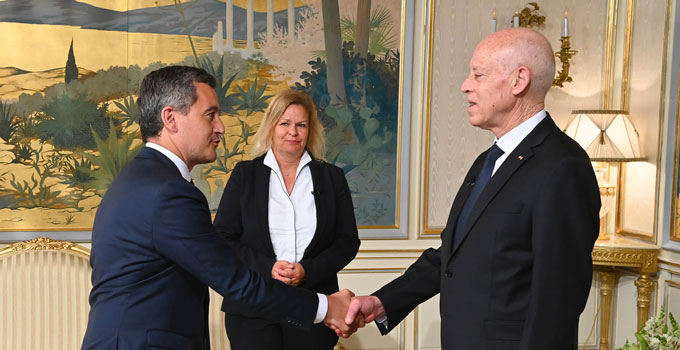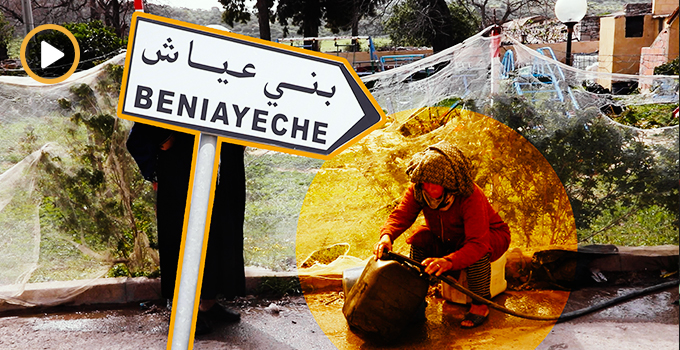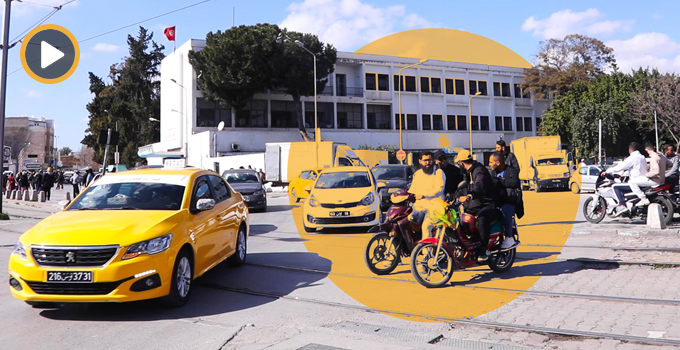Statistics published by the Tunisian Agency of Technical Cooperation (ATCT) highlight this trend. Some 826 Tunisians were recruited for overseas technical cooperation during the first trimester of 2023, a 6.6% increase from 2022.
The medical/paramedical sector is most affected by the exodus. Among Tunisians recruited for overseas positions, 365 are medical and paramedical professionals. Engineers represent the next largest group, with 137 Tunisians. The remainder are computer engineers and educators.
Such data abounds in Tunisia’s national survey on international migration published in December 2021 by the National Institute of Statistics (INS) and the National Observatory on Migration (ONM). According to the study, 39,000 engineers and 3,300 doctors left the country for overseas employment between 2015 and 2020.
Destinations: The Arab Gulf, Canada and especially Europe
The demand for Tunisia’s skilled workforce has increased, as the range of targeted profiles has broadened. Employment offers in Canada serve as an illustration. According to ATCT Recruitment Director Imed Abdennour, Canada has put out 1,890 job offers since 2020. Speaking on Mosaique FM on May 11, Abdennour indicated that a variety of specialties are in demand across the paramedical, computer engineering and teaching professions. Experience is required for recruitment, Abdennour also pointed out.
The ATCT represents but one of many trajectories that Tunisians might pursue in their search for overseas employment. The statistics published by this agency do not therefore reflect the magnitude of the phenomenon.
Emigrant profiles show increasingly higher levels of education—significantly higher than the average across the Tunisian population. One out of three recruits holds a university degree, according to the national survey.
And European countries claim the greatest share of these recruits. Of the 823 Tunisians recruited abroad for technical cooperation, 374 landed in Europe, 228 in Arab countries, 178 in Asia and the Americas and 24 in African countries.
Europe remains the primary destination for Tunisians in general, receiving a total 83.3% of the country’s migrants. First on the list is France (52.5%), followed by Italy (14.1%) and finally Germany (8.2%). As per the ONM and INS report, seven of 10 Tunisians seeking overseas employment prefer to settle in European countries.
Selective migration policy
Although Europe attracts more Tunisian workers than any other continent, its policies around Tunisian migration remain ambivalent. On one hand, its borders are closed to illegal migrants and even those who would like to travel legally and for a temporary period of time. On the other hand, Europe welcomes skilled Tunisian workers with open arms. This ambivalence is manifest in negotiations between Tunisia and Europe relating to migration.
When European Home Affairs Commissioner Ylva Johansson met with Foreign Affairs Minister Nabil Ammar on April 28, the push to block irregular migration was associated with the strengthening of legal migration. The two officials expressed their will to establish a talent-based partnership to promote legal migration. This partnership is to be developed « in correlation with Tunisia and EU member states’ mutual needs and in support of jointly identified sectors and professions, in order to ensure an appropriate response preventing the risk of ‘brain drain’ », as per a statement by the Ministry of Foreign Affairs and Migration.
Promoting Tunisian mobility towards European countries is part of the package encompassing the crack-down on irregular migration and the readmission of migrants, Mahmoud Kaba, director of regional migration projects at EuroMed Rights, says to Nawaat. « Europe’s clear message is: rather than receiving everyone, better to accept what we are looking for ».
Tunisia has rolled out several projects promoting the mobility of Tunisian workers, including HOMERE, MENTOR, and LEMMA.
France, Italy and Germany—which collectively receive three-fourths of Tunisian migrants—each adopt their own selective migration policies based on their particular economic needs.
In search of a workforce
In France, the restrictive visa policy does not apply to certain categories of Tunisian workers. In this context, 7,000 such workers leave for France each year; this includes 2,000 seasonal workers in the sectors of agriculture and tourism. The remaining 5,000 obtain professional visas, the French ambassador to Tunisia, Dominique Mas, reported in January 2023.
Faced with a labor shortage, French employers are pushing for the arrival of foreign workers. In July 2022, the French Union of Hotel Professions and Industries (UMIH) signed an agreement with Tunisia to recruit 4,000 Tunisians for employment in France. The agreement is renewable once a year.
During debates on the « immigration » draft law proposed by the French government in February, the president of the National Group of Independent Hotels and Restaurants of Ile-de-France, Pascal Mousset, argued in support of bringing in a foreign labor force to offset the shortage of workers in the sector:
We just want to keep business going, that’s all. Without these individuals, our businesses no longer function, nor do our hospitals, retirement homes or construction projects.
In Germany, the law on the immigration of skilled workers has encouraged the arrival of workers from non-European countries since March 2020. And Berlin intends to further relax insertion procedures for foreign workers. Its new immigration law aims to draw foreign skilled workers to Germany in order to remedy its severe labor shortage in sectors like handicrafts as well as the care industry.
« For many businesses, the search for skilled workers has become an existential issue », said German Minister of Work Hubertus Heil. Berlin is considering removing the language competency prerequisite for immigration, and also plans to facilitate foreign degree equivalencies.
Italy indicates that it is « prepared to increase the number of legal immigrants educated in Tunisia, who can come to work in agriculture and industry », in order to « reduce irregular migration and strengthen regular migration ». Italian Foreign Affairs Minister Antonio Tajani expressed as much during a meeting with Kais Saied in January. Tajani also hopes to conclude agreements with Tunisia so that « legal workers, young Tunisians and Africans, will be able to settle here ».
Even as Tunisian authorities lament the brain drain, they are encouraging the departure of Tunisian workers through bilateral and multilateral agreements signed with different countries. The creation of the ATCT and the National Agency for Employment and Independent Work (ANETI) fall under the policy which promotes the mobility of Tunisia’s skilled workforce. One of ANETI’s objectives is indeed « to organize placement operations for Tunisian workers abroad and to ensure their achievement ».
During her meeting with Director General of the International Organization for Migration (IOM) Amy Pope on June 14, Tunisian Prime Minister Najla Bouden highlighted the need to strengthen international coordination around the mobility of skilled persons and workers.
Attracting future skilled workers
European countries are also hoping to attract future generations of skilled workers from Tunisia. The number of Tunisian students who left to continue their education overseas rose slightly from 76,023 in 2021 to 76,659 in 2022, according to the Office of Tunisians Abroad (OTE).
France is the number one destination for Tunisian students, and some 44,355 of them are currently pursuing their education there. Second on the list is Germany with 8,497 students, a 13% increase from 2021. In 2022, the French consulate in Tunisia granted 4,500 student visas.
Since 2014, Tunisia has participated in the European Union’s « Erasmus+ » program which promotes « mobility for the purposes of education and training ». In 2021, the program was expanded to include professional training. On June 13, France announced the extension of Erasmus+ with Tunisia. Over 5,000 Tunisian students (up through the postsecondary level) have benefitted from this program and participated in exchanges with European universities.
Tunisian authorities also encourage students to pursue an overseas education. Between 2021 and 2022, Tunisia granted 782 long-term scholarships; these included 525 for study programs in France, 170 for Germany, 80 for Canada and 7 for other countries.
In its efforts to promote mobility, Tunisia is losing its human capital. The situation does not bode well for Tunisian employers. Commenting on the exodus of Tunisian engineers, president of the National Digital Federation within the UTICA, Kais Sallami, evokes « a hemorrhage » of the country’s skilled workforce. Associations of doctors and university professors are also raising the red flag.
Tunisian and European policies are not consistent in the way they address migration. Although Tunisia laments the loss of its workers to foreign countries, in practice it actively encourages this trend. Europe for its part continues to promote selective migration even as this policy remains extremely controversial within member countries.







iThere are no comments
Add yours